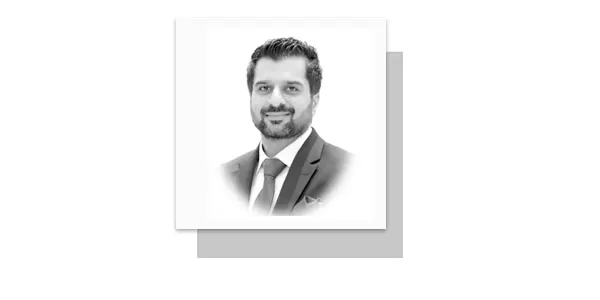GLOBAL economic trends are significantly influenced by political factors in the modern world. The concentration of economic power in the hands of a few developed nations has led to a centralized global political economy, frequently disadvantageous to developing countries. Influential countries can manipulate economic regulations to benefit themselves through their control over a significant portion of power. Embedded biases within international financial institutions, trade regulations and political partnerships contribute to the economic difficulties faced by developing nations. Global governance is dominated by influential nations, which heavily impact the world’s political economy. The political agendas of developed countries frequently mould organizations like the IMF, World Bank, SWIFT and WTO. These institutions are supposed to be impartial, but they sometimes appear to favour powerful nations at the expense of the global economy. Because of this favouritism, developing countries often find that their economic policies and trade practices benefit powerful nations more than themselves.
As leading economic entities, the IMF and World Bank were created to bolster global financial stability and support nations in need. Though these organizations provide loans, they often attach restrictive conditions, which many consider to favour wealthy nations. Developing nations’ economic policies are effectively dictated by the conditions of the IMF and the World Bank, resulting in a cycle of debt and reliance. These rigid regulations diminish these nations’ autonomy and make them prone to long-term economic difficulties. Developing countries often get caught in the crosshairs of trade agreements and economic restructuring programs, which hinder their ability to pursue their own development goals. Exploiting trade conditions is another way that the global political economy can be used to take advantage of others. Wealthy countries often use tariffs, duties and trade barriers to benefit their economies, slowing down the development of poorer nations. Trade policies, such as sanctions on weaker states or complex tariffs, are influenced by political factors. Trade regulations are often used by powerful nations to safeguard their industries, harming less developed economies.
Developing countries often find their economic growth stifled in global markets due to trade restrictions, high tariffs and unfair trade deals. The European market presents a challenging landscape for products from the developing states, with high tariffs and strict quality requirements, largely due to political pressure from regional competitors. These conditions are designed by politically powerful states to control international commerce, benefiting themselves at the expense of developing nations.
Moreover, the global political economy’s inequalities are exacerbated by technological advances, widening the gap. Advanced technology gives developed countries a leg up in manufacturing, boosting their global economic power. Trade blocs, formed by alliances like the European Union, prioritize their economic interests, potentially hindering developing nations. The global economy continues to favour technologically advanced and politically powerful countries. Corporations like Walmart, which outsource labour to developing nations, demonstrate how powerful nations control global supply chains. Despite generating employment, this practice commonly exploits workers, particularly in developing nations, with low wages and substandard working conditions. Developed states depend on the labour force of developing countries for their economic prosperity, creating a dependency that hinders their potential.
In the global political economy, the U.S. dollar plays a crucial role as the dominant reserve currency. The dollar’s position as the world’s dominant currency is upheld by the US’s political power, which is supported by its strong economy. The U.S.’s global currency dominance gives it significant power to impact the world’s economy, enabling it to implement policies or sanctions that benefit its interests. On the other hand, rising economies need to keep large amounts of US dollars, which frequently lead to currency issues. This influences their trade balances and raises their external debt obligations.
The dollar’s dominance exposes how economic control can be used to manipulate global politics. Nations seeking to weaken the dollar’s power, including through alternative currency arrangements, frequently run into political and economic barriers. The dollar’s preeminence enables the U.S. to influence policies in developing nations, leading to economic manipulation that reinforces existing power dynamics. While powerful states impact the global political economy, developing countries also share some responsibility. These nations are susceptible to global threats due to internal challenges like corrupt institutions, exploitative political systems and fragile alliances. Governance problems and institutional deficiencies are widespread in many developing countries like Pakistan, making it challenging for them to secure advantageous positions in international economic affairs.
Due to weak military and economic partnerships, developing countries face difficulty in resisting the influence of developed nations, leading to a lack of collective power. Powerful nations have exerted a significant influence on the economic policies and conditions of developing countries due to the global political economy. The imbalance has created an exploitative situation where developing countries are forced to conform their economic and trade policies to benefit dominant nations, frequently hindering their advancement. Developing countries can overcome their dependence by strengthening institutions, forging regional alliances and embracing technological advancements. The global political economy, in its current state, is inherently exploitative. Making this a more balanced platform for everyone requires cooperation from both rich and poor nations. Achieving a more balanced and fair global economy depends on developing nations addressing internal challenges, fostering robust partnerships and pushing for equitable economic practices globally. The lack of equal opportunities in the global political economy will exacerbate the divide between the Global South and North, leading to a world of exploitation where the powerful and powerless clash for survival. No doubt, this would be a catastrophic scenario.
—The writer is an educationist and a Commoner from 44th Common, based in Sargodha.
(waqarhassancsp@gmail.com)










